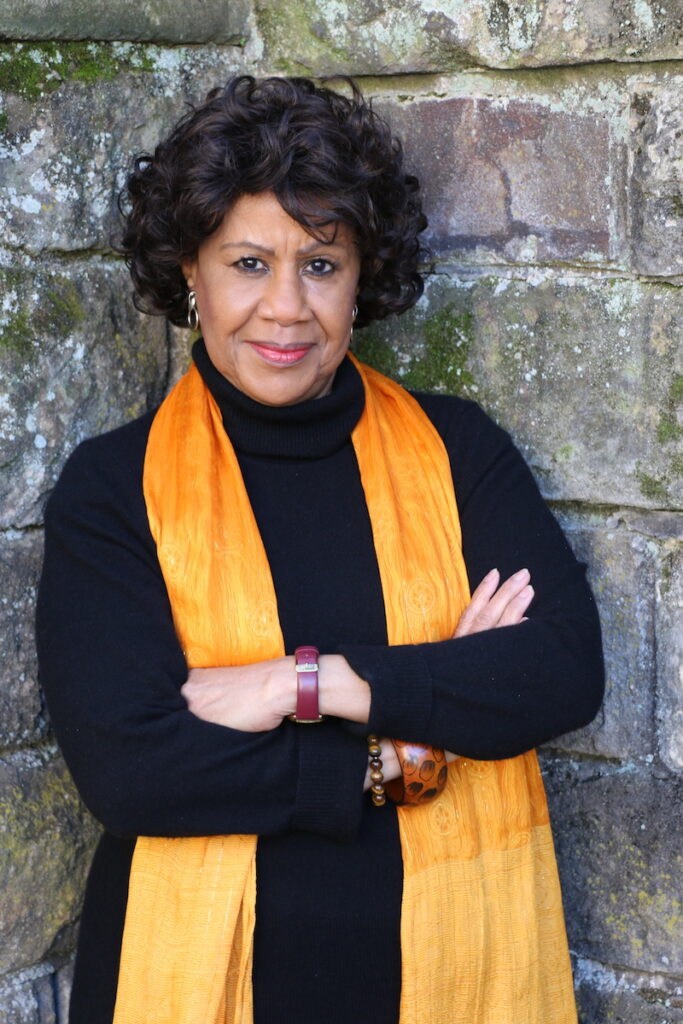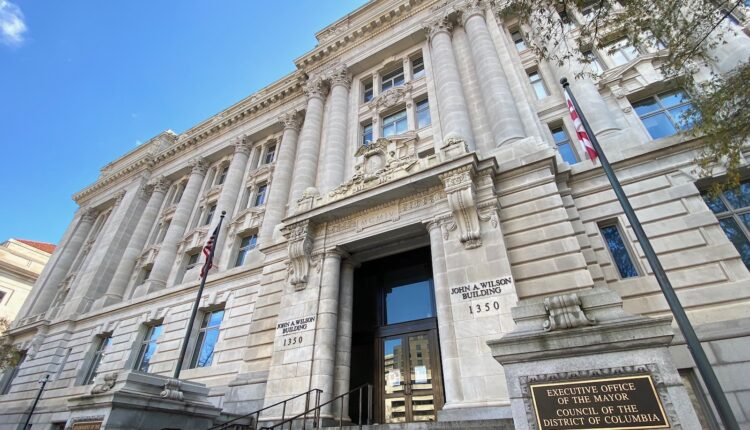I’ve been around DC politics long enough to know that when a candidate goes negative, whether directly or indirectly, it’s usually because that person’s campaign is having a tough time gaining traction. The aim is to knock the opponent off his or her game or to make voters question their perception of the front-runner.

Sometimes such assaults work. Most often in DC, though, voters are turned off by them. Back in the late 1990s when Anthony Williams was drafted by a cross section of District residents to run for mayor, there were others who hoisted him by his bow tie and accused him of being a pawn for the rich and near-rich, perceived to be enemies of poor Black people.
Adrian Fenty was cast in a dark light each time he ran for mayor. Initially, that scheme didn’t work; the second time around, it did, however. Interestingly, the leaders of the he’s-corrupt strategy or their political allies soon were caught in their own dragnet. A couple of the council members who were part of it all were hauled off to jail or forced to resign based on plea agreements with the U.S. Attorney’s Office.
If one understands that past is prologue, it’s unsurprising to see negative political tactics in the DC attorney general race. Four individuals — Ryan Jones, Brian Schwalb, Bruce Spiva and Kenyan McDuffie — are vying for the Democratic Party’s nomination. The primary is scheduled for June 21.
Let me make one thing clear: I have no dog in this fight. I am a political independent so I can’t vote in the primary. However, some District voters are already bristling at what they consider smear tactics.
“We don’t think smear campaigns are in the best interest of the general public,” said Stuart Anderson, a leader of the First Friday breakfast group, which is comprised of mostly Ward 8 residents who meet every month to discuss critical issues in their communities. Before the pandemic, they met at the IHOP on Alabama Avenue SE. Often the central focus of their conversations has been public safety, but they sometimes expand to other topics and invite guests.
At last week’s meeting, Schwalb, Jones, Spiva and McDuffie presented their credentials and answered specific questions around public safety. Sandra Seegars, another of the First Friday leaders and the prime interlocutor for the meeting, admonished participants not to make derogatory comments about other candidates. No one is interested in that.
“We didn’t feel like hearing that back-and-forth,” Seegars told me during a subsequent interview, specifically referring to the challenge to McDuffie’s eligibility submitted by Spiva to the DC Board of Elections. “At this point we don’t know how it’s going to turn out, and we didn’t want there to be any speculating.”
Writing in the brief to the Elections Board, Spiva noted that the law required a candidate for attorney general to have been “actively engaged, for at least 5 of the 10 years immediately preceding the assumption of the position of Attorney General, as: [a]n attorney in the practice of law” in DC or “an attorney employed in the [District] by the United States or the District of Columbia [governments].” He asked elections officials to make a determination “expeditiously and within the 20-day period prescribed by [DC] law.” A closed-door meeting between all parties has been set for April 13.
Spiva has a connection with someone who knows something about kicking candidates off the ballot: Ben Wilson is his campaign chair. Back in 2002, when Wilson was chair of the Elections Board, the panel voted to keep Williams off the ballot; he was seeking a second term. That decision came in response to a challenge by several voters — including Mark Sibley and Shaun Synder — and DC Watch, a government watchdog group. Williams was forced to mount a write-in campaign, which he handily won.
Spiva’s connection to Wilson could provide him some advantage in proceedings before the board. But, how much?
More than two months ago, when I received calls from individuals telling me to expect this claim, I thought it was a joke. How do you make a case that this candidate — who is a member of the District of Columbia Bar, who has worked in the U.S. Department of Justice’s Civil Rights Division, and who has been engaged for the past 10 years in not just writing District laws but also overseeing the enactment and enforcement of those laws — is ineligible to run for the position of attorney general?
Further, I couldn’t imagine that any lawyers serving on the DC Council would vote to approve legislation that would automatically disqualify them from seeking a higher office in the city. The law was written just a few years before DC’s first election for an attorney general, which took place in 2014 when Karl Racine won the first of his two terms.
In the political arena, sometimes fear instigates illogical thinking and behaviors.
“The average voter doesn’t even know the city has an attorney general or doesn’t know exactly what that person does. But they have heard of McDuffie,” explained Seegars, who has been involved in local politics for decades. “I see [Spiva] being afraid just on that alone.”
Spiva has never run for office. He isn’t the only candidate who was scouting out the McDuffie-isn’t-qualified route, however.
Multiple knowledgeable sources told me this week that Schwalb conducted what they described as a “push poll” that among other things asked residents whether they would vote for an attorney general who had not appeared in court as a lawyer for several years. Push polls often are used to test negative messaging that frequently shows up in the last leg of political campaigns.
Brenna Crombie, a spokesperson for Schwalb’s campaign, denied that allegation.
“To be clear, this campaign did not conduct a ‘push poll’ on any of our opponents, nor will we in the future. That is not how this campaign operates,” she said in an email response to my question, adding that “Brian’s entire campaign is built around listening to District residents to understand their priorities and how he could best use the law to stand up for them as the next Attorney General.”
Schwalb’s campaign has done polling using well-known Democratic pollster Celinda Lake’s company, Lake Research Partners, however. When I asked Crombie to confirm this on the record and to provide details about the polls, she declined.
“I do not want to clarify my statement,” she told me in an email.
My call Tuesday to Lake Research Partners was not returned prior to publication. Lake called me Thursday after this column was posted.
“We do not ever do push polling,” she told me, adding that her company was the first to sign onto the American Association of Public Opinion Research standards that prohibit push polling.
Further, she denied that her company had asked “a single negative question” in its polling for Schwalb.
We’re in the beholder’s world. It seems the adage applies not just to beauty, but to negativity and the legitimacy of certain tactics as well.
Schwalb is the former partner-in-charge of the DC office of Venable LLP, one of the top law firms in the city; that’s where Racine worked before becoming the city’s first independent, elected attorney general. Last month, Racine, stepping on — if not across — the ethics line, publicly endorsed Schwalb as his successor, saying that he is the only contender with the qualifications to perform the job.
While there have been episodes in DC of candidates going extremely negative in campaigns, often they or an ally simply challenge an opponent’s qualifying signatures on nominating petitions. At-large Council member and mayoral contender Robert White did that last week, with campaign manager Luz Martínez filing a complaint with the elections board against his Ward 8 colleague Trayon White; both are hoping to unseat Muriel Bowser, who is running for a third term. In fact, the Board of Elections this week released a spreadsheet listing 23 pending petition challenges in all.
Rarely have there been questions about whether a candidate fulfills the basic qualifications to run for office as has been raised about McDuffie. Since he is the perceived front-runner, residents can expect more negative tactics to surface in the coming weeks.
“Sometimes it’s hard not to say something about the other person,“ said Anderson, who has run before for the Ward 8 council seat. But it’s just not that helpful to the voter: “I want to know more about you as a candidate and what you bring to the campaign, what you bring to the table.”
Can the choir say amen?
This post has been updated to include comment from Celinda Lake, who responded after this column was originally published.
jonetta rose barras is an author and freelance journalist, covering national and local issues including politics, childhood trauma, public education, economic development and urban public policies. She can be reached at thebarrasreport@gmail.com.



DC has a decision to make for the next four years. This article is helping those who do not get out or who do not has virtuality to make a decision.